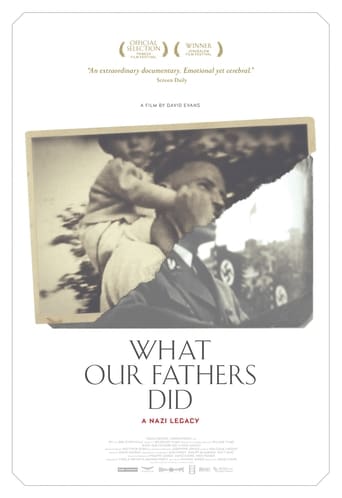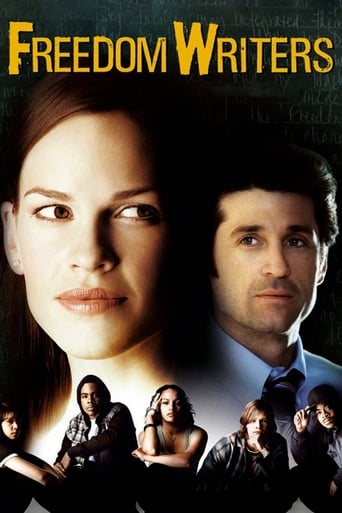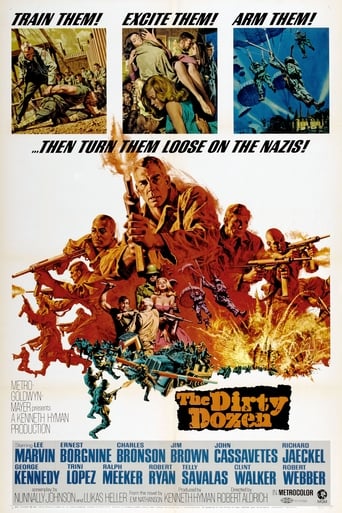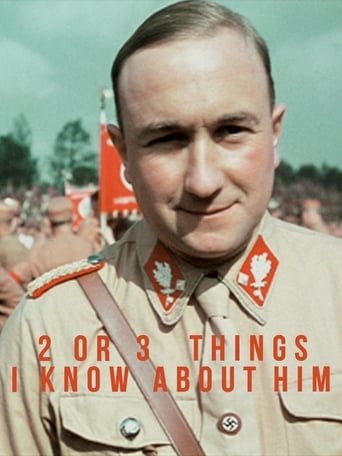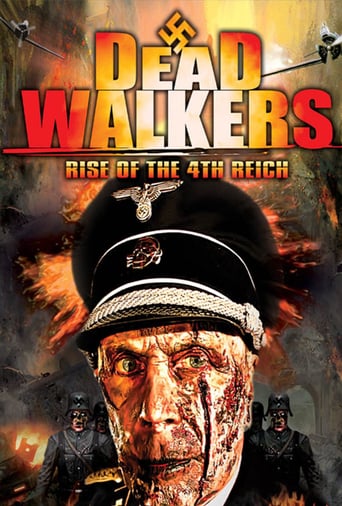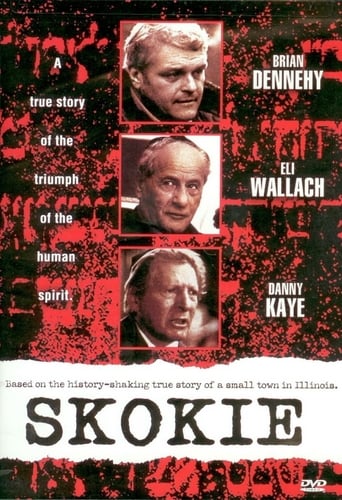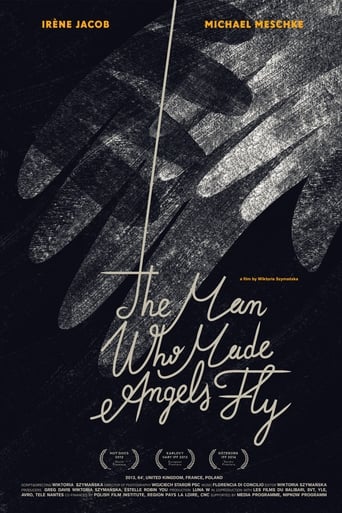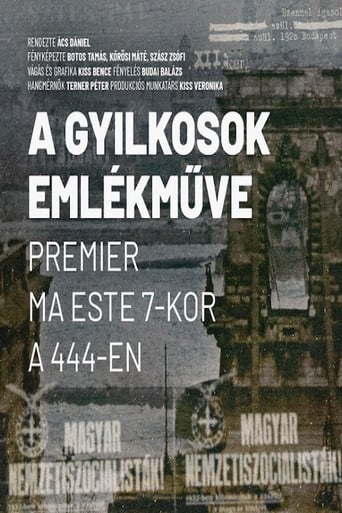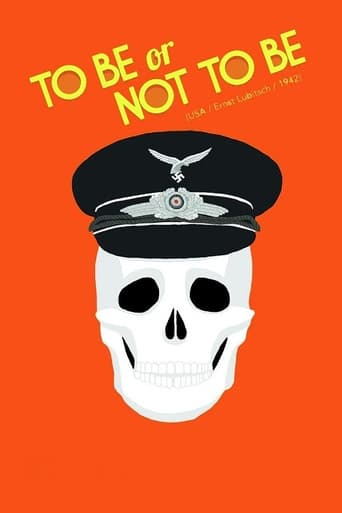What Our Fathers Did: A Nazi Legacy (2015)
Can you imagine what it means to grow up as the child of a mass murderer? Hans Frank and Otto von Wächter were indicted as war criminals for their roles in WWII. Nazi Governors and consultants to Hitler himself, the two are collectively responsible for thousands of deaths. But what stood out to Philippe Sands were the impressions they left on their sons. While researching the Nuremberg trials, the human rights lawyer came across two men who re-focused his studies: Niklas Frank and Horst von Wächter. The men hold polar opposite views on the men who raised them.
Watch Trailer
Cast


Similar titles
Reviews
Touches You
The Worst Film Ever
That was an excellent one.
A great movie, one of the best of this year. There was a bit of confusion at one point in the plot, but nothing serious.
While a few reviews across the internet have said this is not a good documentary because of the bullying of the one elderly man, I beg to differ. This documentary is about showing how two elderly men who had fathers in power that were nazis. One elderly man is fine accepting that his father was horrible. The other elderly man refuses to accept his father was horrible. Its meant to show us how strong people can be about their views on both sides, especially when confronted with the truth. The one man that that kept defending his father is the one some people support because, as the man says, his father did not kill anyone. He did not fire a gun. He did not do anything. He was simply the "ruler" and had to follow orders or else he would be killed. If anything this man tells us his father tried to help the Jews. Despite having no evidence of that really. Even when shown documents that his father gave orders and paid the people under him to kill jews, he still denied that his father was to blame. And in reality that is not how things work. If I hire someome to kill someone else, I may not do the killing. But I am responsible since I hired someone to kill someone else. The elderly man doesn't realize the point the other elderly man (and the third man) was trying to make was that his father would have been a truly good man if he refused the orders and let himself be killed. But because he didn't want to die, he instead did what he was told and thus passed on the orders too. Which made him part of the killing of the Jews. A TINY part of you can almost understand why he defends his father. Its his father, despite not knowing him really as a child, you don't want to live in shame of knowing your father was bad. However, most of you realizes its just how things are. You have to accept your father did what he did. You as his child do not have to live with that guilt because you were a child at the time. Your father my have been a horrible person, but you are your own person and have your own legacy.Which is why the other elderly man was someone I agreed with on everything. He didn't have any pride in being his fathers son. He didn't make excuses for his father. He accepted his father was a bad man, a nazi. And while the documentary doesn't really end on any sort of resolution, it does however leave you thinking about how people think in these situations. And it also makes you realize just how much nazism is still out there today. You see a event going on at which the elderly man (in denial) seems to almost enjoy where people are dressed up in nazi gear. Even with kids with shaved heads are at it. It is scary to think these sort of people still exist and are teaching their kids such things. You almost feel as if the eldery man is not really in denial, buy maybe a nazi sympathizer. Which he could very well be.
Sands seems hell-bent on destroying Horst. Sands obviously is on a mission to bring the guy down. I find it very ironic that Sands uses bullying tactics that the Nazi's used to push Horst into saying things or admitting things that he simply doesn't believe! Nik Frank is almost pathetic as Sand's lacky running around denouncing his father at every opportunity. There were many people involved in the running of the system then and I sympathize with Horst when he is trying to say that things were more complex than we can understand being removed by so many years. Everything is rarely as black and white as some people would like to believe. I was left with a very unsettling feeling after it was over. I don't like all the assumptions that are made and I especially don't like that Nik Frank says the day of his father's execution is a happy day for him. Regardless of what his father was accused of I find that very disturbing. Having said all that the film still gives insight into a very important period of history and some unique perspectives that are important to understanding the time period.
This documentary focuses on Niklas Frank and Horst von Wachter, both born in 1939, and both being the sons of high ranking officers in the Nazi regime, who were directly involved in the mass murders of Jews, and other citizens, during WWII. However today, Niklas and Horst are near polar opposites in how they view their fathers. Niklas abhors and detests everything about his father Hans and what the Nazis did, and how, although he was only a young child during that period, his father's actions have haunted and plagued him his entire life.On the other hand, Horst, at least in the film, shows no real emotion for those persons that were exterminated, but states that his father Otto was of good character who protested what was happening, and was only part of the Nazi system carrying out his duties.One of the filmmakers Philippe Sands, an international lawyer specializing in genocide, is also a major participant in the movie. He is the chief interviewer of the two men, and also serves as narrator. We learn he's also directly linked to the story, as his grandfather was the only survivor of his 80 relatives that were killed by the Grossaktion in the Ukraine in 1942, where 3500 Jewish citizens of that area were exterminated. This was an area that was run by Otto von Wachter, under the command of Hans Frank.There are a number of things in this documentary that I found very chilling and disturbing. To mention just a couple, one was how Niklas recalls his father coming home from another day of mass murder, and acting like a "normal" dad at home. Another was some of the Ukranians, during the 2014 uprising and civil strife, welcoming Horst, while wearing a type of Nazi paraphernalia, and telling him what a good man his father was, with seemingly no regard for those that were exterminated there.Overall, I thought this was a well presented documentary, with fascinating film clips of the Nuremberg Trials and the prison there. I thought this movie presented a different angle to the infamous Nazi history as well, with the focus on two sons of Nazi officers and how they felt today some 70 years later about their fathers.
Philippe Sands lost nearly all of his ancestors in Ukraine at the hands of Nazi's and their sympathisers. He became a barrister and specialises in human rights violation cases and war crimes. He met with two men who both owned up to being the sons of prominent Nazi's during WW II and he set out to make a film about them now and what the sins of the fathers mean to them.This film was made for the BBC Timewatch programme and has all the hallmarks of a high quality production. What makes this so watchable is the fact that the two men are at either end of the spectrum when it comes to blame. One hating his father for his crimes and the other claiming his papa did nothing wrong despite the evidence. He is not even using the 'he just followed orders' excuse as his father was the one issuing those self same orders.I found this to be a difficult watch in places even with the desensitising nature of modern TV it is still hard to contemplate the mass murder that Hitler and his acolytes carried out. Things here are generally balanced though and to say it was engrossing is an understatement – I would go for a rental if you can as you may not gain more on subsequent viewings.

